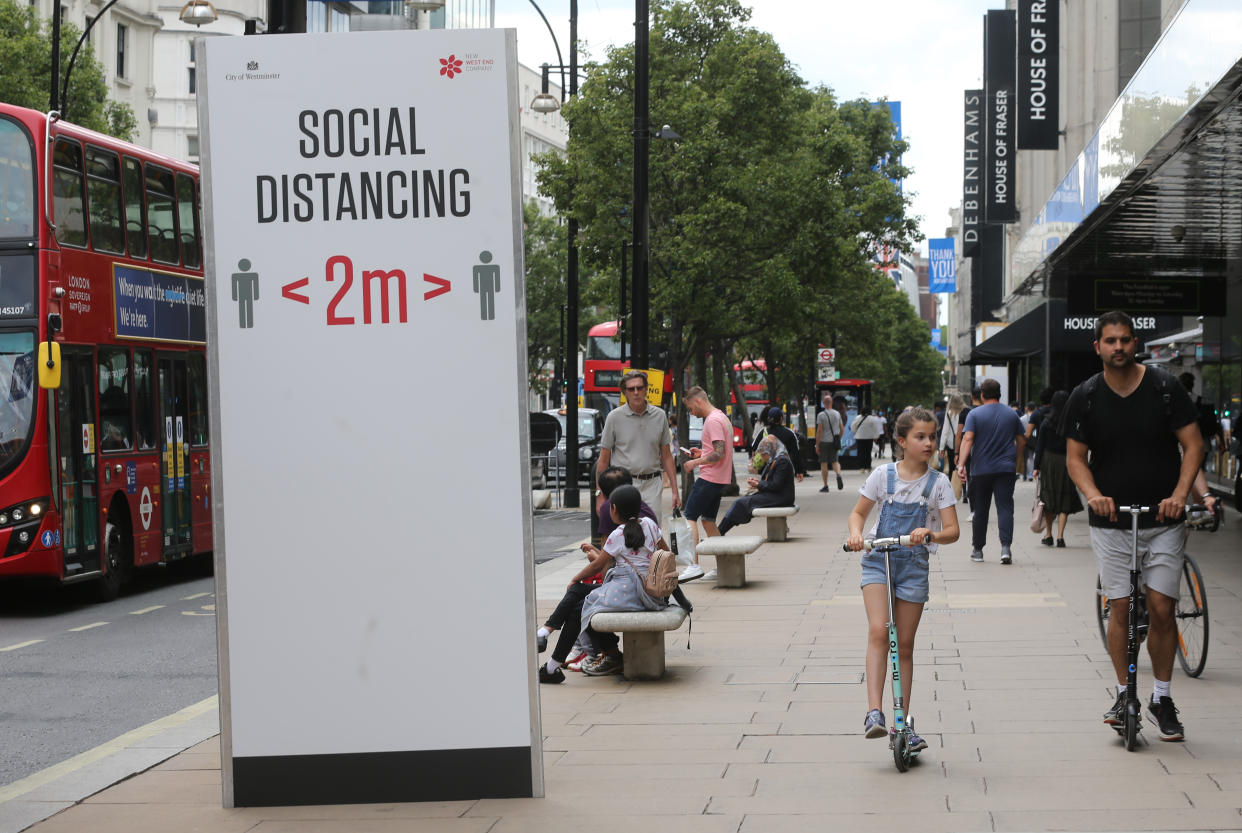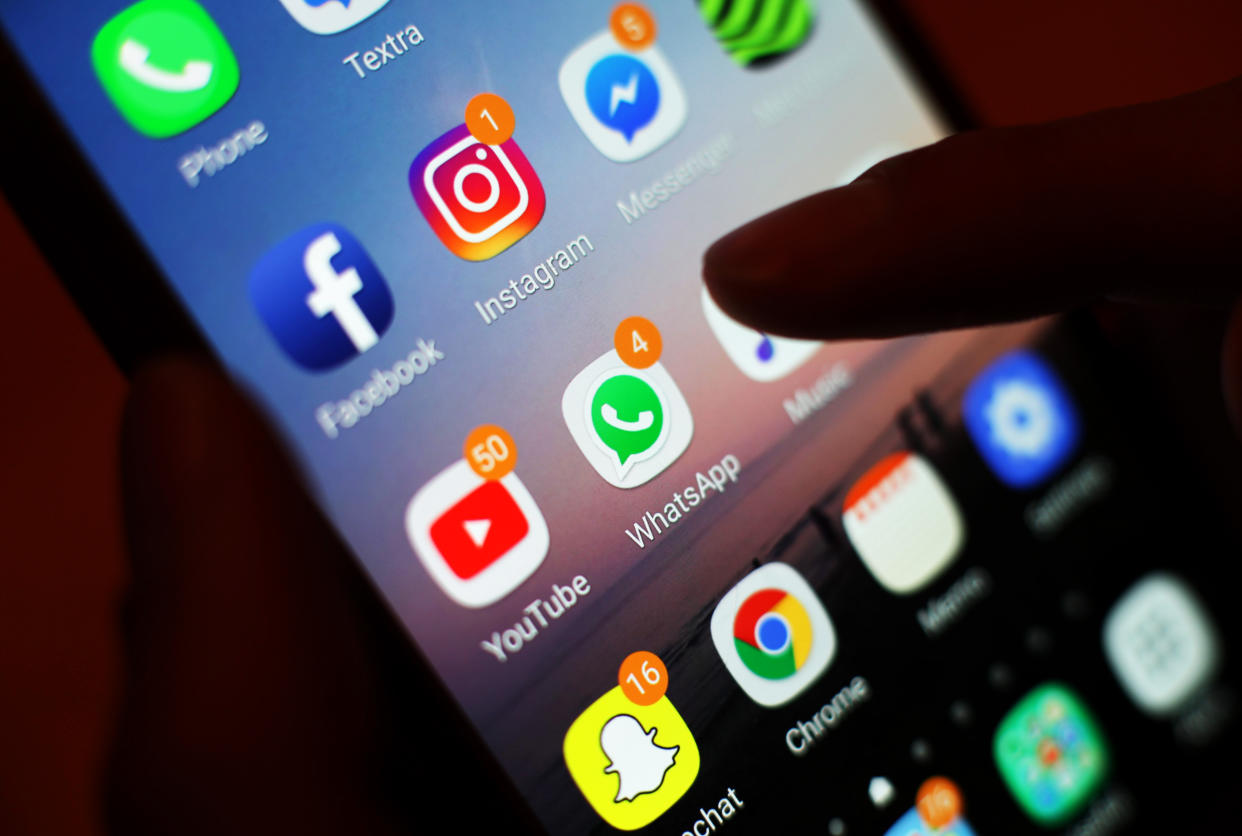COVID conspiracies: 7% of Britons think there is no hard evidence that coronavirus exists, poll suggests

Despite a global death toll of nearly 450,000 and most of the planet shutting down for months, 7% of Britons do not believe there is any evidence coronavirus actually exists.
The finding, based on surveys of 2,254 UK residents aged between 16 and 75 carried out by King's College London and Ipsos Mori, was part of a wider study on conspiracy theories surrounding COVID-19.
It found that 30% of Britons believe coronavirus was created in a laboratory, while the same figure believe the actual death toll is being reduced or hidden by authorities.
Thirteen per cent said the pandemic was part of a global effort to force people to get vaccinated, while 28% believe most people in the UK have had coronavirus without realising it.
NEW Millions of Britons believe conspiracy theories about #covid19 - especially high among @Facebook and @YouTube users - 7% think ALL a hoax, 8% believe 5G theory etc etc ... SIGH - new study with @policyatkings pic.twitter.com/lT71SoaH0l
— Ben Page, Ipsos MORI (@benatipsosmori) June 18, 2020
The study also found that people who rely on social media for information about coronavirus are more likely to believe conspiracy theories and breach lockdown rules.
More than one in 20 (8%) think the symptoms that most individuals blame on COVID-19 appear to be connected to 5G network radiation – a false conspiracy that is thought to have motivated a number of mobile mast attacks across the country during lockdown.
Of those who believe this theory, 60% said they get their information from YouTube, compared with 14% who think that it is false.
On Facebook, the number stands at 54% among believers, versus 20% of non-believers.
Among those who believe there is no hard evidence that the virus exists, 56% use Facebook as their key information source, almost three times higher than the proportion of people who do not believe such a thing (20%).
The findings also suggest a link between those who have broken lockdown rules and use social media for details about coronavirus as well.
Three in 10 people who wrongly believe that 5G is causing COVID-19 symptoms have gone outside despite suspecting they may have the virus, compared with just 4% among those who reject this belief.
People who admitted going outside with possible symptoms are more than three times as likely as those who have not to get a fair amount or great deal of their information about the virus from YouTube.
Meanwhile, 55% of Facebook-reliant users said they took the risk, compared with 21% who did not.

The results indicate a similar trend among those having friends or family over during lockdown, as well as failing to stick with two-metre distancing rules.
Professor Bobby Duffy, director of the Policy Institute at King's College London, said: ”These sort of associations cannot prove that misinformation on social media platforms causes belief in conspiracies, lower trust and a greater likelihood of breaking the rules, but they point to a toxic mix between underlying beliefs and misleading information that can have real effects on how people behave, even during a pandemic.”
A YouTube spokeswoman said they were “committed to providing timely and helpful information about COVID-19” and “quickly remove videos violating” their policies.
Facebook said they had removed hundreds of thousands of COVID-19-related pieces of misinformation “that could lead to imminent harm”.
Coronavirus: what happened today
Click here to sign up to the latest news, advice and information with our daily Catch-up newsletter
Read more about COVID-19
How to get a coronavirus test if you have symptoms
How easing of lockdown rules affects you
In pictures: How UK school classrooms could look in new normal
How public transport could look after lockdown
How our public spaces will change in the future
Help and advice
Read the full list of official FAQs here
10 tips from the NHS to help deal with anxiety



